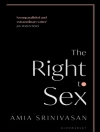Annual volume of essays treating topics ranging from physical impairment to narrative afterlife and time.
The fifteenth century defies consensus on fundamental issues; most scholars agree, however, that the period outgrew the Middle Ages, that it was a time of transition and a passage to modern times.
Fifteenth-Century Studiestreats diverse aspects of the period, including liberal and fine arts, historiography, medicine, and religion. Volume 35 addresses topics including physical impairments as depicted in surgical handbooks printed in Germany and as reflected through eyeglasses for the blind (a therapy proposed by French vernacular poets); literary constructions of women in de Meun’s
Cité des Dames and in hagiographic legends of Spain; the evolution of the Order of the Garter as dramatized in Shakespeare; serious elements in French farces; the festival context of Villon’s
Pet-au-Deable; Boethius in the late Middle Ages;
A Revelation of Purgatory and Chaucer’s Prioress;
Piers Plowman in one British Library manuscript; and narrative afterlife and time in Henryson’s
Testament of Cresseid. Book reviews conclude the volume.
Contributors: Milagros Alameda-Irizarry, Chiara Benati, Edelgard E. Du Bruck, Rosanne Gasse, Chelsea Honeyman, Noel Harold Kaylor Jr., James N. Ortego II, E. L. Risden, Julie Singer, Geri L. Smith, Martin W. Walsh.
Matthew Z. Heintzelman is Curator of the Austria/Germany Study Center and Rare Book Cataloger at Hill Museum & Manuscript Library, Saint John’s University, Minnesota; Barbara I. Gusick is Professor Emerita of English at Troy University Dothan; Martin W. Walsh is Head of the Drama Program at the University of Michigan’s Residential College.
Содержание
Violencia en tres cuentos hagiográficos de la España medieval — Milagros Alameda-Irizarry
Physical Impairment in the First Surgical Handbooks Printed in Germany — Chiara Benati
Serious Elements in Medieval French Farces: A New Dimension — Edelgard E. Du Bruck
Reading
Piers Plowman in the Fifteenth and Sixteenth Centuries: The Evidence of British Library Cotton Caligula A XI — Rosanne Gasse
Narrative Afterlife and the Treatment of Time in Henryson’s
Testament of Cresseid — Chelsea Honeyman
Euclid in Boethius’s
De Consolatione Philosophiae and Some of its English Translations — Noel Harold Kaylor
Seeking the Medieval in Shakespeare: The Order of the Garter and the Topos of Derisive Chivalry — James N. Ortego
A Revelation of Purgatory and Chaucer’s Prioress — E.L. Risden
Eyeglasses for the Blind: Redundant Therapies in Meschinot and Villon — Julie Singer
Jean de Meun in the
Cité des Dames: Author versus Authority — Geri L. Smith
The Festival Context of Villon’s
Pet au Deable: Martinmas in Late-Medieval Paris — Martin W. Walsh












